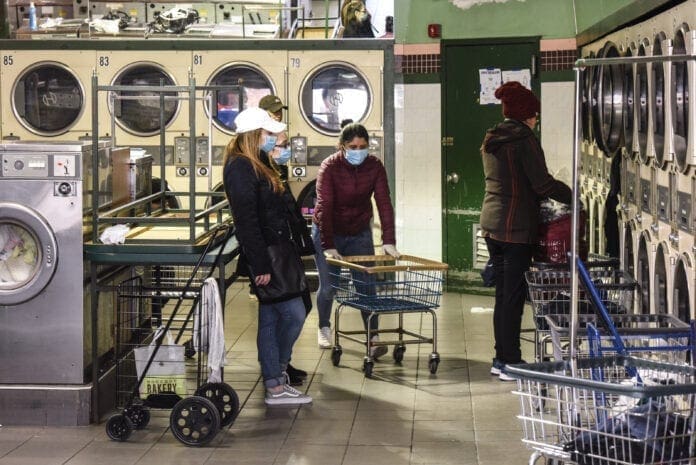Every once in a while, my lines become blurred. I’m an organizer who floats back and forth between socioeconomic classes and a parent with the lived experience of poverty. Being an organizer means that I am constantly pushing for change and, because it’s my passion, I understand that achieving change requires some level of risk.
But last week I spent more time dealing with class rules than change.
Last week, I was smacked in the face by the reminder that class rules are a huge determinant of level of risk. I typically organize with folks like me: casual, honest, scared but resilient, and fed up with inequities. When you’re marginalized, there’s a much lower risk of having a relationship with someone in a position of power or prestige, so it’s something I don’t automatically think about. I quickly realized that I had to use low levels of risk because the high risks were tied to personal relationships that I failed to calculate in, creating a lot of awkward silence and uncomfortable moments. It also created a whole list of things for me to ponder.
I came to the realization that class rules have more control over organizing sometimes than the organizer, and I can’t change class rules. I may be able to provide the space for relationships to develop across class lines, but that is long-term work. I’ve thought about this a lot and how it reflects the West Virginia education system.
A Little Deeper
West Virginia has one of the nation’s highest child poverty rates. When I mention this, it’s because I want you to understand what that means, so if your head is filled with pictures of hungry kids, I want you to go a little deeper. Why? Because if a child is hungry, it’s because their head of household is struggling financially with a lot of things.
I wish the topic of poverty was more common in discussions about our public education system. I mean, our state has a median income of $43,600, so most education professionals are considered middle class, but, even though our numbers are so high, what does the education system do to support those kids and families as far as educating the professionals who serve them? Poverty looks a lot of ways, and socioeconomic class rules have a tendency to make it look a lot like neglect.
Once, I was talking to a teacher who mentioned that two children in her classroom always came to school in dirty clothes. I asked if she had ever asked the parents why. “No,” she said. So, realizing that she didn’t live in the area in which she taught, I asked if she knew there wasn’t a laundromat for miles and miles. Again, she told me no. I suggested that she call the parents and bring it up because there were a number of reasons people would be unable to wash clothes, such as lack of laundry equipment in their home, lack of laundromats, lack of transportation, being able to only carry what you can hold on a public bus, etc. I could tell that she had never considered that there could be extenuating circumstances involved. Class norms told her that there was no reason other than neglect for children to wear dirty clothes.
Chatter By Class
Another teacher and I had a conversation about children being punished for not charging their laptops at home in preparation for school. I have a tendency, especially as I learn more, to believe education to be an unnecessarily punitive system. I asked if it was fair for a child to be punished for not charging a laptop if their home had the electricity cut off. She was confident that the children would tell her while I was confident they would not.
This past week, I received messages from a couple of people about not participating in an activity because of the “drama” and “noise.” I was struck by this because I couldn’t recall any drama, and then I realized that it was class rules coming into play as to what should and shouldn’t be said on social media. People with professional and personal ties to the system couldn’t participate with folks who created “noise” because it went against their class norms and rules that called for private conversations and not airing their views on social media.
In a state where poverty runs rampant, our education system needs to acknowledge the effects of poverty on the children and families they serve and meet them where they are. If I can be surprised and thrown off balance by class rules, then I can only imagine how difficult it is for those who are already intimidated and afraid of punishment from the education community. It’s time West Virginia’s public education stops showing its class.
Education is knowledge.
Onward,
Amy Jo


